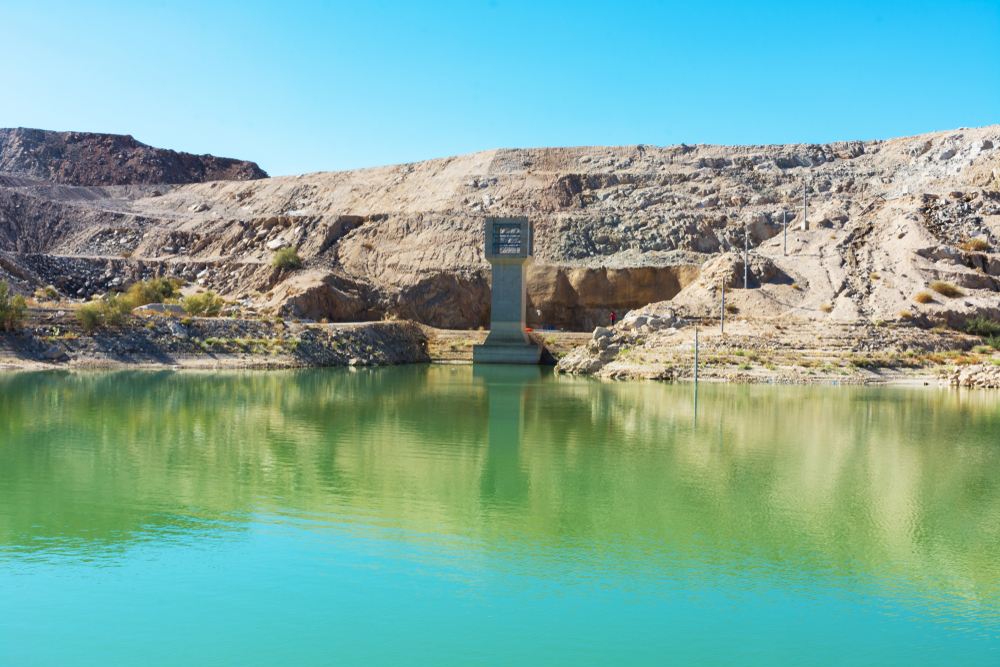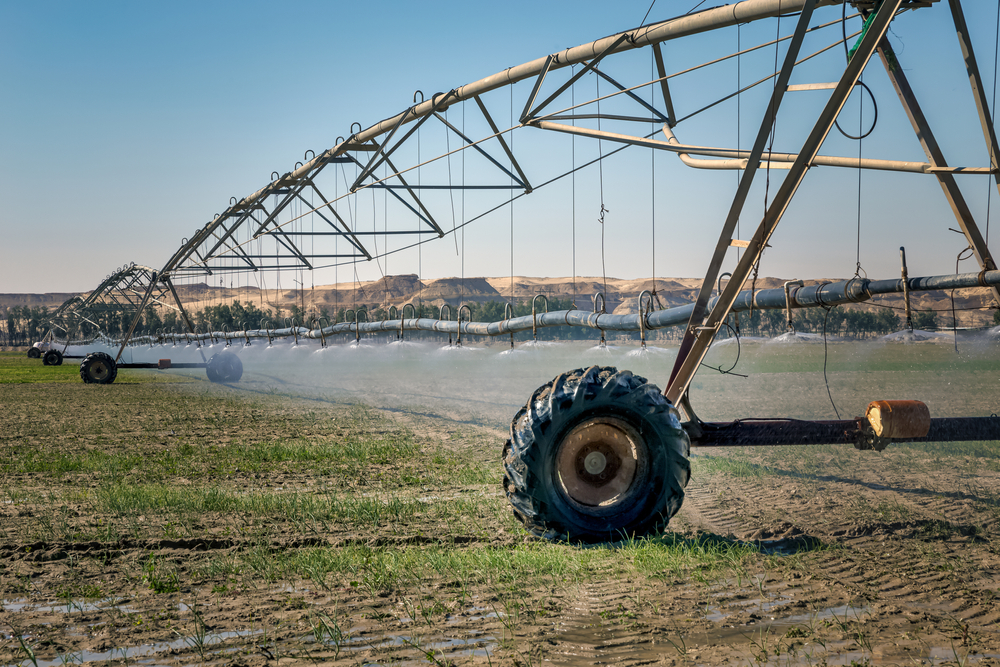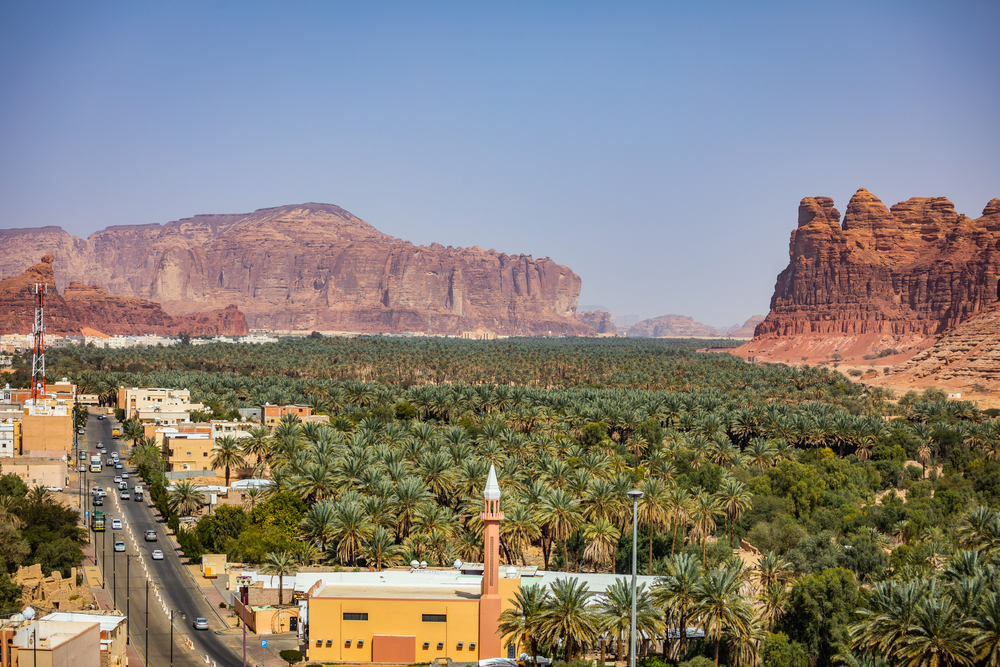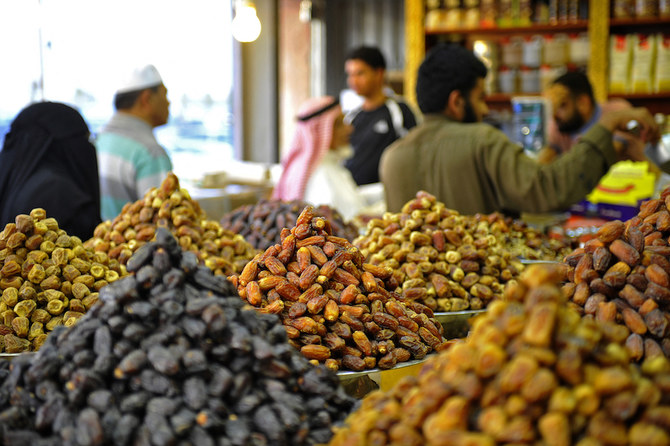RIYADH: Saudi Arabia is a waterless and barren land, covered by vast deserts and rugged mountains and therefore unsuited to anything but growing dates. Right? Actually, wrong.
The Saudi environment is dry, no doubt. But surprisingly, the Kingdom is an agricultural powerhouse, on the path to achieving a considerable measure of food security, while becoming a major exporter of agricultural products.
This trend has been given further urgency with the implementation of Vision 2030, which defines agriculture as one of five main strategic sectors, alongside aerospace/defense, automotive, transport/logistics, and construction.
So, how is this possible?
First off, Saudi Arabia is more water-rich than it may appear at first glance. While the Kingdom has no permanent rivers, and one of the lowest rainfall rates in the world at only four inches per annum, it possesses huge underground water reserves.
Just as lakes of oil exist deep beneath its parched surface, there are vast subterranean aquifers. In 2019, these supplied no less than 10 billion cubic meters of irrigation water to local farms.
Moreover, the government has constructed a network of dams in wadis throughout the country to capture floodwater from the occasional heavy rains. And of course, Saudi Arabia leads the world in the desalination of seawater, with no less than 27 desalination plants feeding both cities and farms.

View of Wadi Murwani dam, located in Al-Khulais, Saudi Arabia. (Shutterstock)
This access to considerable volumes of water has allowed the nation to supply its domestic market with wheat, dairy products, eggs, fish, poultry, vegetables, and flowers — and to export all of these items around the world. And believe it or not, Saudi Arabia is, thanks to some help from the Irish, one of the most efficient dairy producers on Earth, with an extraordinarily high annual output of 1,800 gallons per cow.
That said, the Kingdom faces challenges in terms of its 1.7 percent annual population growth, along with the demands of an ever-more sophisticated consumer market. A simple diet of dates, camel milk, and the occasional piece of meat might have sufficed a century ago. But today’s consumers, in line with the rest of the world, have come to expect an almost infinite array of choice.
No doubt, Saudi Arabia will not stop importing some foods. After all, authentic Japanese wasabi can only be imported from Japan and genuine Parmigiano-Reggiano is only made in Parma, Italy. But agriculture in the Kingdom is projected to grow by 5 percent annually over the next five years.
Saudi Arabia’s two new “Green” initiatives will be partly driven by the Strategy for Sustainable Development of Agriculture, a component of Vision 2030. This overall strategy has four main targets: Efficient and sustainable use of agricultural and natural resources, especially water; comprehensive and sustainable food security; improvement in agricultural efficiency and productivity; and sustainable rural development.
INNUMBERS
* 1st - Saudi Arabia’s rank as Middle East’s food importer.
* 80% - Consumed food that comes from abroad.
* 16m - Tonnes of food consumed annually at present.
* 4.6% - Expected annual food-consumption growth rate.
These policies are being implemented in the face of the coronavirus disease (COVID-19) pandemic, an unforeseen and ongoing crisis that has highlighted the danger of any country relying too heavily on global supply chains for essential commodities such as food.
Smart agriculture in Saudi Arabia means shifting the focus toward crops that require relatively less water and finding alternatives to water-intensive farming. Thus, farming of thirsty grains such as wheat has been largely transferred to water-rich Sudan, while local farmers are encouraged to concentrate on water-conserving approaches such as the greenhouse production of fruits and vegetables.
Further value is being added via the processing of raw materials. For instance, farmers are canning and juicing fruit, as opposed to merely supplying fresh produce. Fruit canning is the Kingdom’s largest food-production segment, and fruit juice is the No. 2 revenue source for Saudi food producers. And Saudis know well that 1,001 products can be made from the humble date!
The future success of agriculture in the Kingdom will largely depend on efficiency of production. Vision 2030 recognizes modern farming as an “industry,” comparable to construction and logistics, and just as dependent on innovation and new technology.

Irrigation system for farming in pivots, located in the desert Area in Al-Sarar, Saudi Arabia. (Shutterstock)
A recent academic paper in the Journal of the Saudi Society of Agricultural Sciences, said: “There is a gap between demand and production of agricultural products (in the Kingdom) which must be filled through the adoption of modern technologies, that is land and water-saving approaches, greenhouse farming and seawater harvesting.”
One example of smart farming is hydroponic agriculture — that is, growing plants with only water and nutrients instead of soil. Hydroponic farming can be incorporated as an aspect of urban growth. There is no reason why large indoor spaces cannot be built or converted to produce hydroponically-grown fruit, salad products, and vegetables — providing food to a city without the need for long-distance transport and logistics.
Hydroponic agriculture can also harness semi-treated grey water produced by sewage and industry, thereby recycling valuable natural resources.
Another bright idea is “aquaponic” farming, whereby aquatic creatures such as prawns feed from naturally growing bacteria and produce nutrient-rich wastewater that can be used to cultivate edible plants. This kind of low-maintenance virtuous cycle is highly suited to a water-scarce country such as Saudi Arabia.
Of course, attention must also be given to more traditional agricultural resources — but with the application of modern techniques. The science of genetics can have a dramatic effect on the output of local breeds. Goats, for instance, are indigenous to the Kingdom and are a traditional source of both milk and meat.

The continued expansion of Saudi Arabia’s agricultural sector requires ongoing cooperation between the public and private sectors. (Shutterstock)
Genetic crossbreeding of local goats with foreign breeds has the potential to significantly improve significantly both size and output of livestock. All of this indicates that many of the answers to Saudi Arabia’s food security issues can, with some imagination and experimentation, be found on its own doorstep.
These biotechnologies also provide exciting new commercial openings in the quest to diversify the Saudi economy and free the country from dependence on oil and its various derivatives.
The continued expansion of Saudi Arabia’s agricultural sector requires ongoing cooperation between the public and private sectors and depends on four key elements: Education, technology transfer, advisory services, and investment in new facilities.
The government is leading the way in terms of investment and infrastructure, and Saudi farmers are accepting that innovation and change are facts of life. What remains is for entrepreneurs to take advantage of the fact that agribusiness and biotechnology are set to play a vital part in the future and will be major revenue sources.
The issue of food security poses a challenge for the people of Saudi Arabia — and a major opportunity.



























